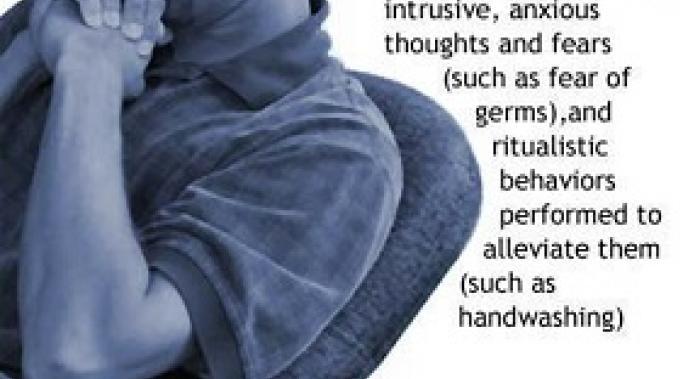Anxiety and laziness seem unseemly because social pressure tells us it’s not okay to be lazy -- or anxious. We tend to value productivity and activity – if we don’t get as much out of the day as we can, we can be looked down upon. However, anxiety and laziness can go together, and it's okay to be lazy when you're anxious.
Anxiety Stigma
I’ve consigned myself to the fact that my anxiety will never go away. Part of it may be due to genetics –- another part may be due to how my brain is wired -– but another part, and one that we need to talk about more often, is that American society itself creates anxiety symptoms.
Why is it so difficult to feel sympathy for people with mental illness? Some of you may have heard the story I'm about to talk about – it gained a fair amount of traction online a few weeks ago. Regardless, I feel the need to share it again, because it so perfectly embodies our broken attitudes and inability to feel sympathy regarding mental health.
I receive a lot of negative comments and unsolicited advice as an anxiety sufferer. The average person who has experienced anxiety may think that he has some helpful comments and suggestions for you. Some anxiety management ideas may, in fact, be helpful. Other observations are simply unsupportive or condescending. For the most part, I’ve found that unsolicited comments and advice are not constructive or beneficial to me as an anxiety sufferer.
If you live with anxiety, chances are pretty good that you’ve heard a well-meaning family member or friend tell you, “Just get over it,” "Just get over anxiety." If it were that easy, no one would have anxiety because we’d all get over it and move on (‘Get Over It’ Is Unhelpful Advice for Mental Illness Sufferers). Unfortunately, the idea of just getting over it doesn’t help anxiety, and being told to do so can make it worse. Why doesn’t hearing “Just get over it,” fail to help anxiety? What can you do about it?
Anxiety awareness is important all the time, but during Mental Illness Awareness Week, a special spotlight shines on mental illness, including anxiety disorders. Such a spotlight brings light and warmth to anxiety, which is so often swept away into dark corners. Read on for information that can help increase awareness of anxiety and anxiety disorders and lessen some of the frustrations that come with a lack of understanding.
My name is Gabe Howard and I have bipolar and anxiety disorders. As a public speaker and writer using my lived experience with mental illness, I say that sentence often. Some version of that is on my business card and website and it is how I start most of my speeches. But, is that my identity? Is a set of diagnoses really who I am?
I'm sure you've heard these statements:
He's so OCD.
Quit being so OCD.
This is just my OCD coming out.
The term OCD has become common in our society. Stigma turned OCD into an adjective that we frequently use to describe someone who likes things a certain way. However, OCD, short for obsessive-compulsive disorder, is much more than a compulsion for neatness.
Kids and Their Psychiatric "Disorders"
This morning, I read a disturbing headline: 1 in 5 Kids May Have Psych Disorder.
Say what? It makes me wonder: What are we doing to our children?
As someone who has been in the field for 20 years, I have seen diagnosing children with a psych disorder do more harm than good. Children fulfill the prophesies of these mental health diagnostic labels and it is very hard to recover from these identities supported by years of mental health practitioners, with albiet good intentions, telling them what is wrong with them and that they have to "cope" with it.
We all have a mental health.
And each of our mental health is in flex all of the time. We, our minds and our bodies and our hearts, change every moment. What separates people with so called "mental illness" (I hate this term) is an us-them mentality. A simple–while misdirected–belief that mentally ill people are different. And that begets fear.
I am very excited that HealthyPlace.com began their Stand Up For Mental Health Campaign this week. This award winning website wants to break the stigma by having people join together and speak out about their problems! I say, let's do it!
If we do it, other people will feel less alone and isolated. And I think that heals better than anything.
Help us spread the word. Go here to put a button on your website like mine below.








